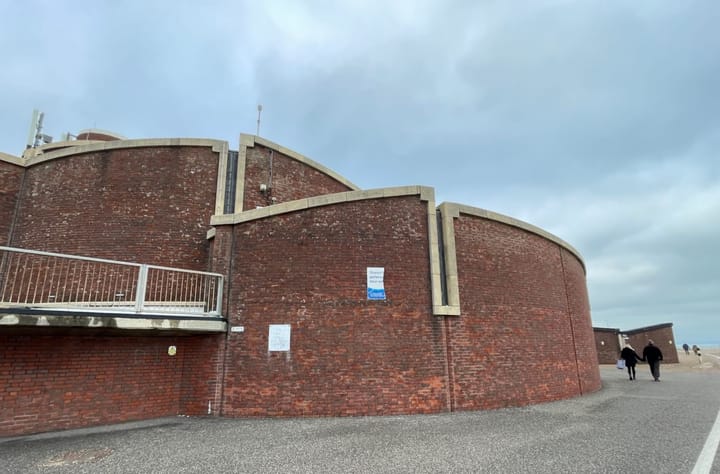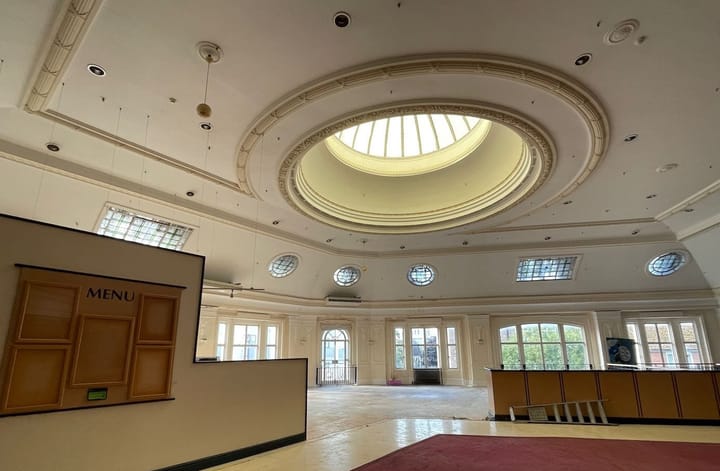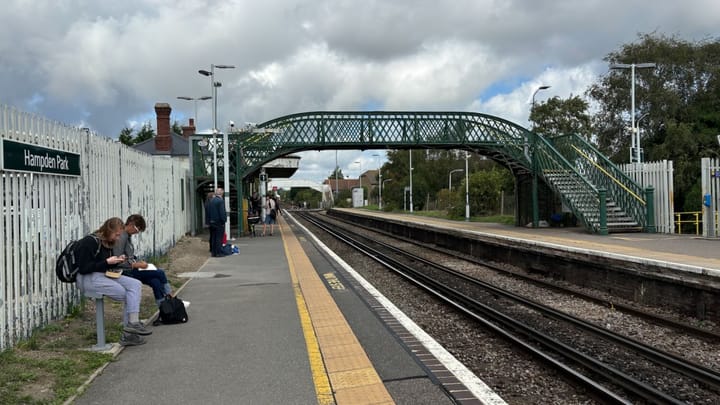REVIEW: Fiddler on the Roof
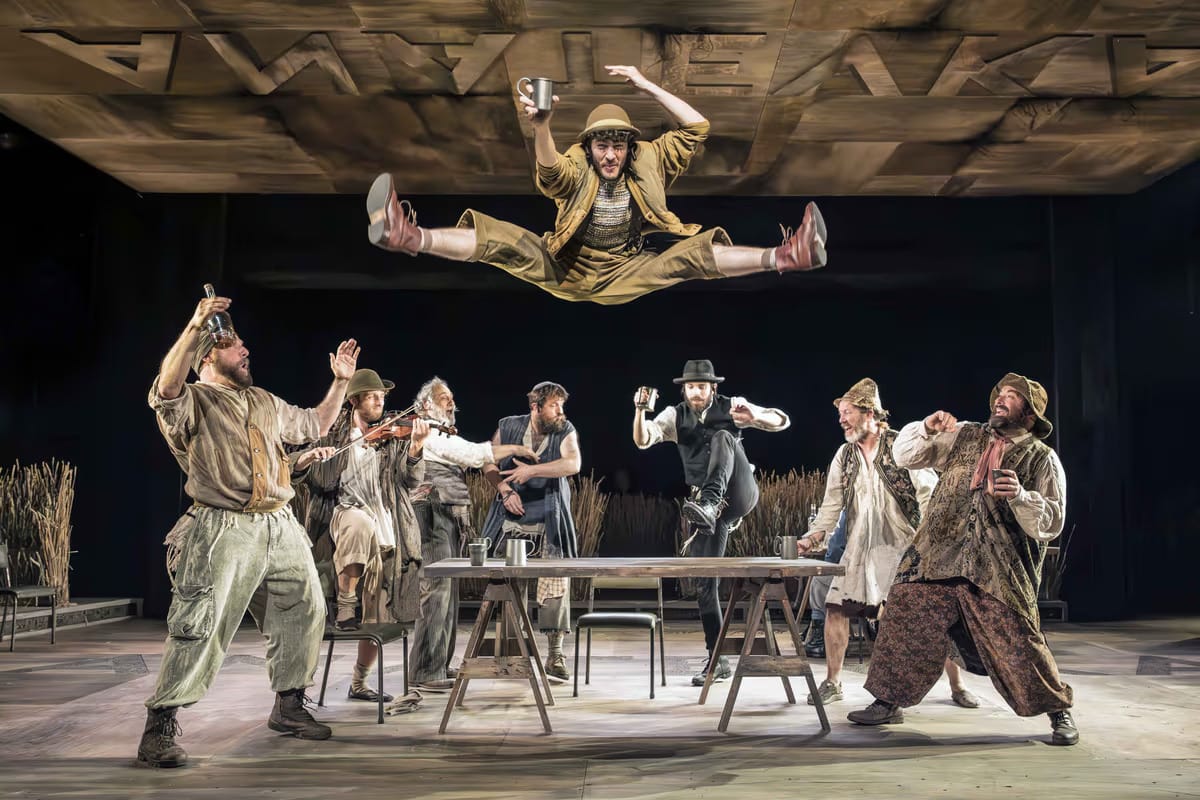
By Paul Bromley, volunteer theatre reviewer
This was the biggest show Eastbourne has seen for many years – and the first major production since Trafalgar Entertainment took over the town’s theatres.
And it showed as the Congress Theatre complex buzzed with excited theatregoers for the opening night.
To add to the sense of occasion, 14-year-old Lynne Naito from Eastbourne, a pupil with Create Music, played the violin beautifully at the Welcome Building to get the audience in the mood.
So on to the multi-award-winning show, in Eastbourne as part of a UK and Ireland tour after selling out at the Barbican in London.
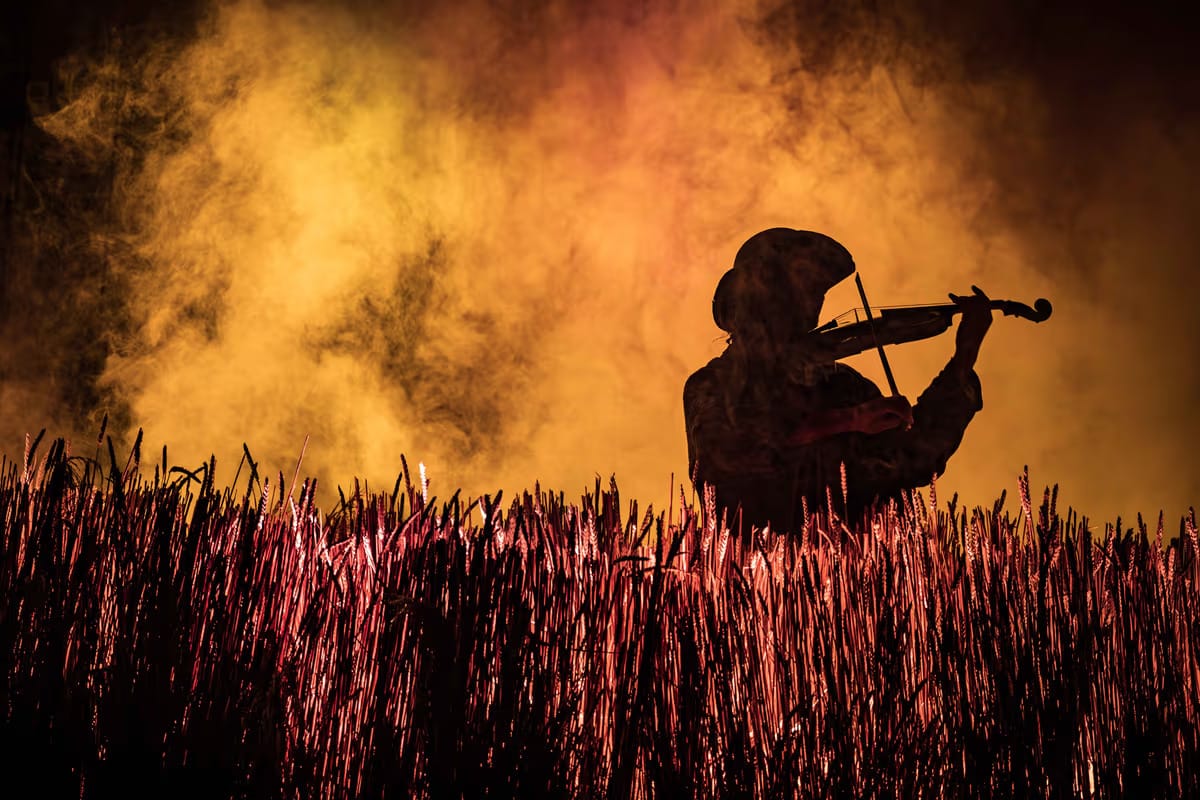
The curtain rises to reveal the fiddler (Roman Lytwyniw for this performance) on the roof – a high platform above the stage. There is a sea of dimly-lit faces at the back of the stage, the people of the small village of Anatevka in Tsarist Russia in 1905.
Tevye, the poor dairy farmer, comes forward and explains more about the fiddler. He is an everyman figure because everyone is “trying to scratch out a tune without breaking his neck”.
Then the lights come on for the cast to launch into the rousing opening number Tradition.
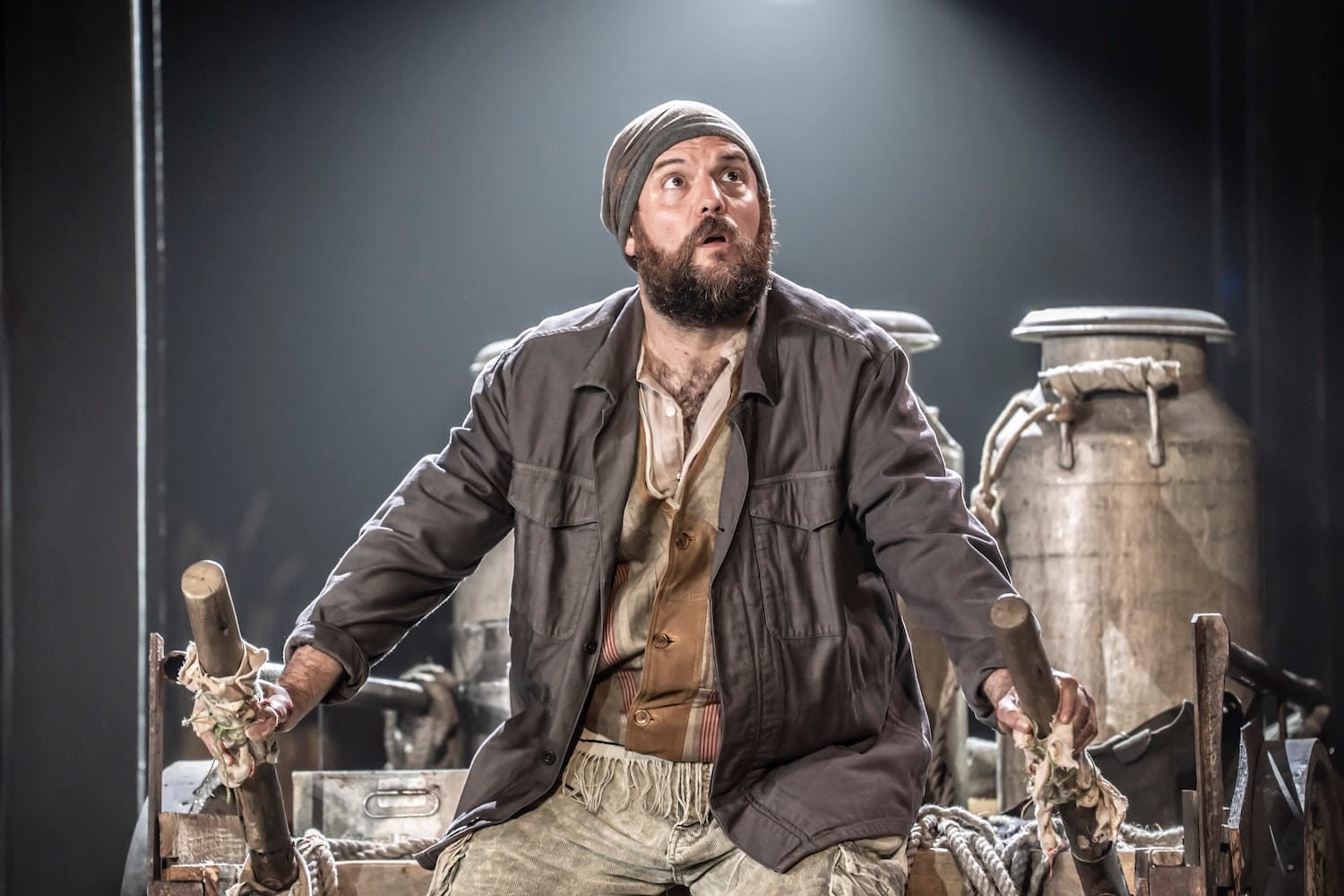
The musicians are on the same level as the cast, at the back of the stage rather than in the orchestra pit. They are half hidden by the scenery but visible enough for the audience to know they are an integral and equal part of the show. This is a musical, after all.
Tevye (Matthew Woodyatt) is the one for whom tradition means the most. This is a place where “everyone knows who he is and what God expects him to do”.
It also means that his five daughters know they will marry “whoever Papa picks”.
“Without our traditions, our lives would be as shaky as a fiddler on the roof,” according to Tevye.
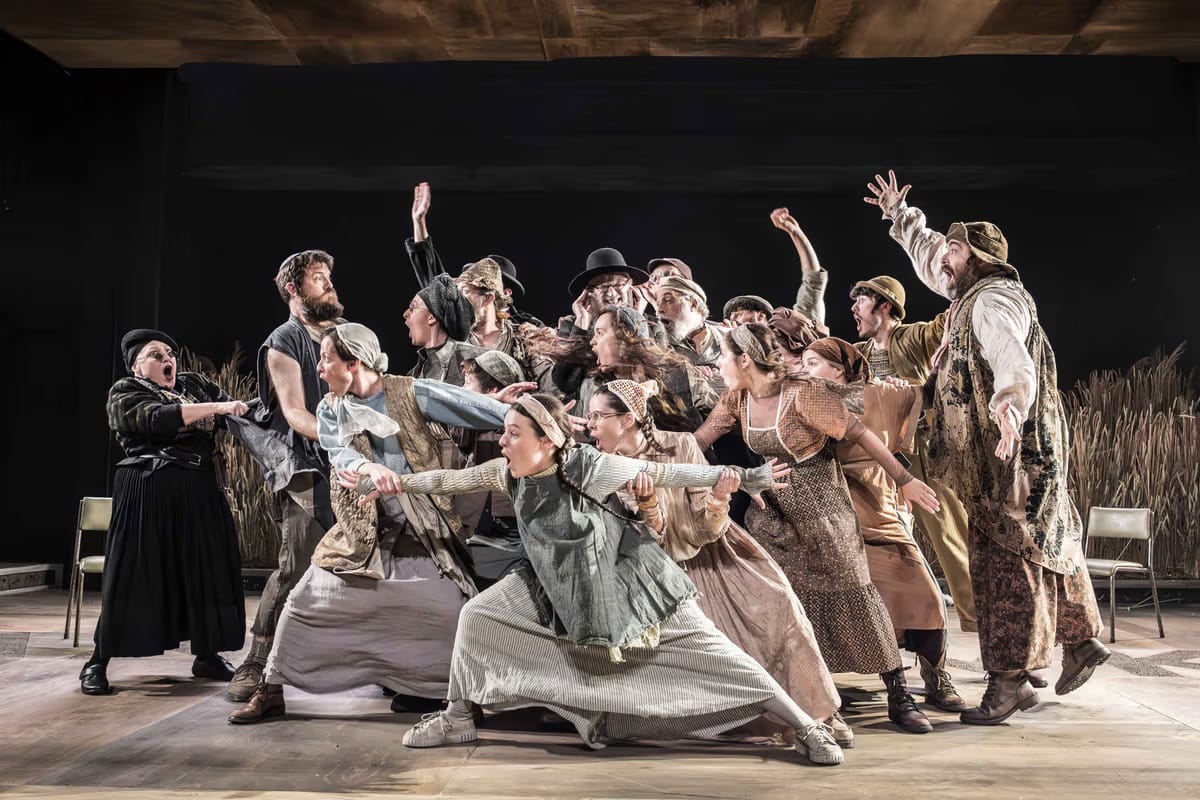
The show has minimal props – a few tables and chairs plus Tevye’s milkcart. This works well as there is no need for a lavish set. It sets the scene for the poverty-stricken villagers with few possessions and allows the cast to use the full width, depth and height of the stage.
It is also a versatile set (designed by Tom Scutt) with the platform lowered at one point to form the canopy for the wedding of Tevye’s eldest daughter Tzeitel (Natasha Jules Bernard) to the poor tailor Motel (Dan Wolff) who is her choice of husband rather than her father’s, the rich butcher Lazar Wolf (Michael S. Siegel).
After about 40 minutes, the action came to a sudden halt, the lights came on in the auditorium and it was announced the performance was being “paused”. This was an unfortunate technical glitch on the opening night: Eastbourne Theatres later explained it was an audio problem. These things happen in live theatre.
The unscheduled break gave the audience a chance to admire the set and discuss the performance so far.
Ten minutes later, the show re-started and the story developed of the daughters and their choices of husbands against the backdrop of Jews being asked to leave their homes elsewhere in Russia.
The refrain “times are changing” is heard several times – on a micro-level about Tevye’s family but on the macro-level about the violent Russian thugs and their targeting of Jews.
Fiddler on the Roof is at its heart an uplifting and joyful celebration of life
There are some wonderful set-piece scenes. I particularly enjoyed the wedding celebration with men dancing with bottles on their head and an athletic leap by Perchik, the revolutionary student/teacher from Kyiv (played by Greg Bernstein), off the table (main picture).
Also worth mentioning is the dream sequence with the modern props of a giant fan and lots of dry ice accompanying the more basic theatrical element of white sheets to create a memorable cameo.
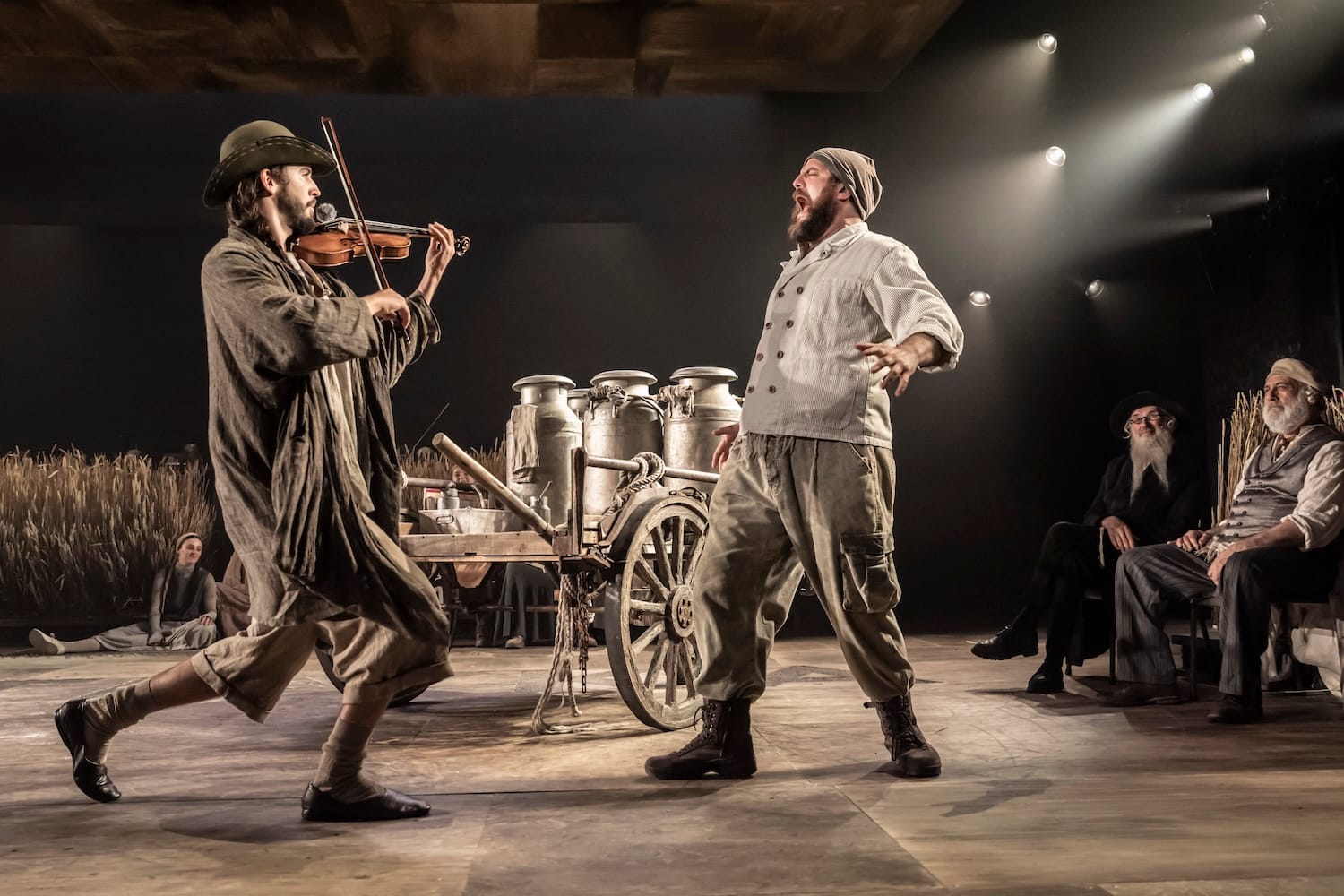
Having seen the 1971 film of Fiddler on the Roof several times but not for many years, I had forgotten how many funny lines there are. Plenty of laughs from Tevye’s wife Golde (Jodie Jacobs), the busybody village gossip matchmaker Yente (Beverley Klein) and the rabbi (Mark Faith).
There is much sadness too. There is brilliant staging as second daughter Hodel (played on the opening night by Ashleigh Schuman) leaves for Siberia where Perchik is being held in prison after being arrested for his revolutionary actions. The villagers all have their backs to the audience, looking off-stage to create a sense of distance and departure.
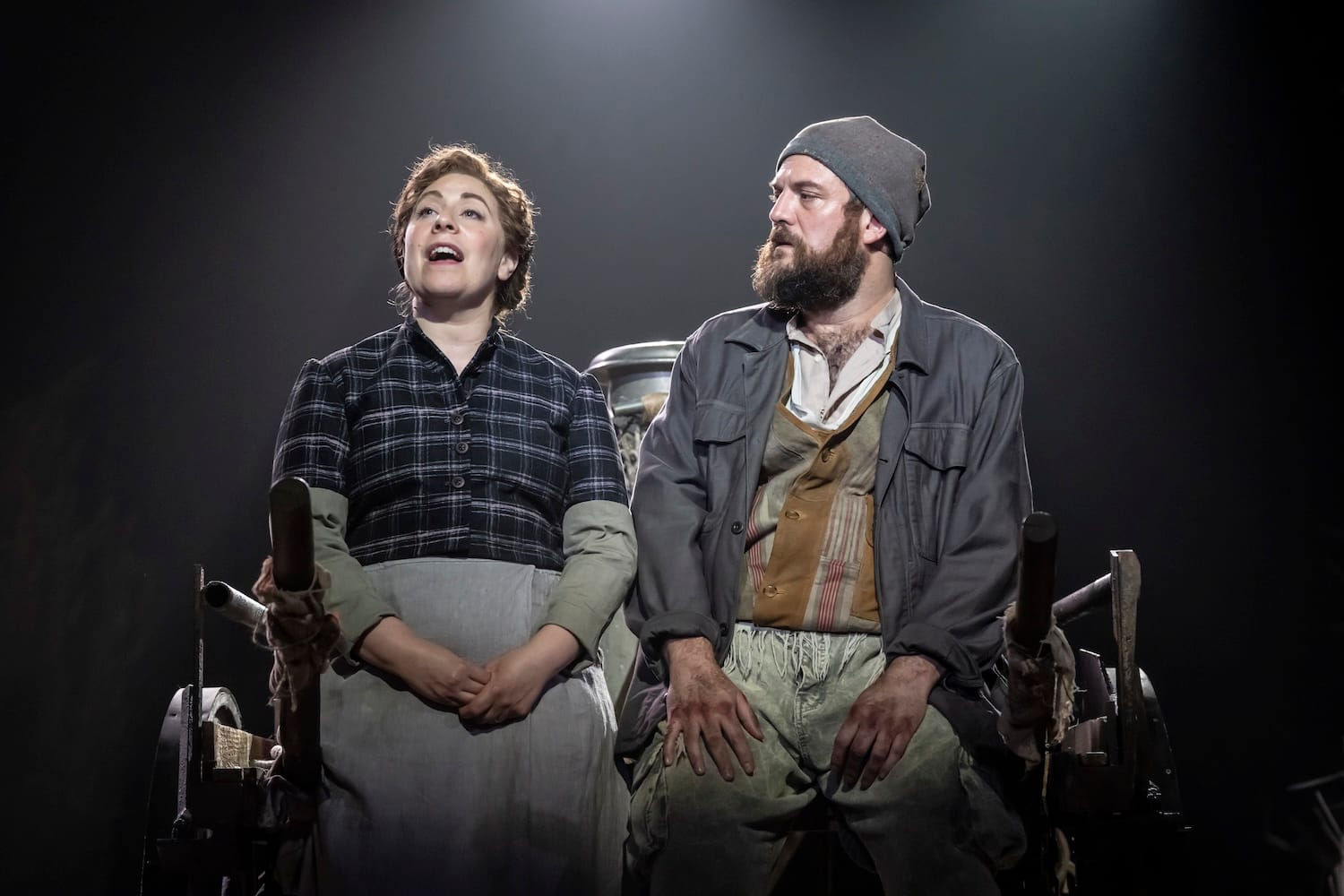
Matthew Woodyatt plays Tevye as a man in constant struggle. He’s trying to stick to his traditional beliefs while accepting the world is changing. His various pleadings to God above for help in understanding what is happening inevitably go unanswered as he has to make the heart-rending decision whether to leave his home in the face of the threat of violence.
As he and the rest of the villagers leave Anatevka and scatter across the world (some to America, Krakow and the Holy Land), it is inevitable one’s thoughts turn to the modern stories of displacement and people on the move.
That’s what makes Fiddler more than a Jewish story and more than a historical narrative.
Yes, there are many moments of poignancy and sorrow in the production. But to dwell on them would be to ignore the fact that Fiddler on the Roof is at its heart an uplifting and joyful celebration of life.
Bravo Eastbourne Theatres: welcome Trafalgar Entertainment!
:: Fiddler on the Roof runs at the Congress Theatre until Saturday 8 November. Tickets available here
:: Paul Bromley is a qualified journalist and broadcaster who worked for 40 years for regional newspapers, the Press Association and Sky News. He now works in community rail. He is a volunteer writer with Eastbourne Reporter

